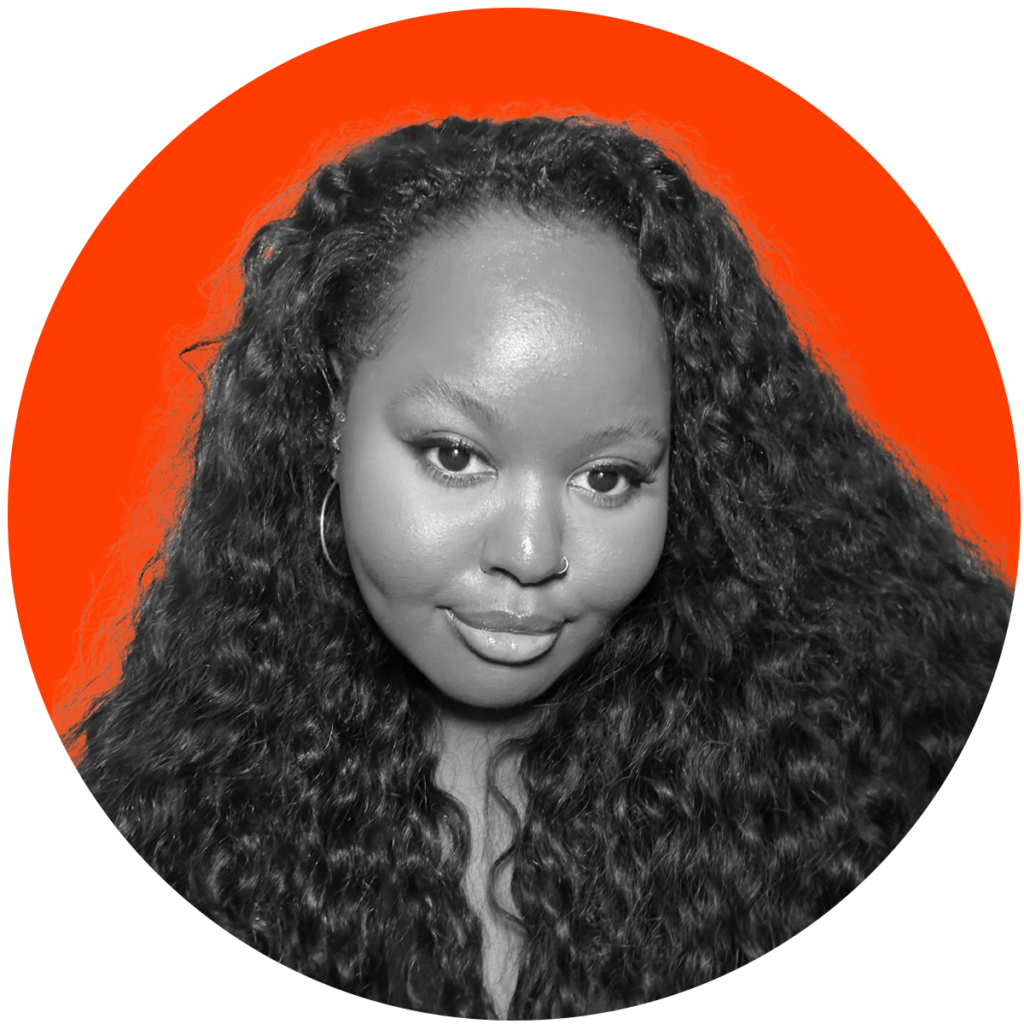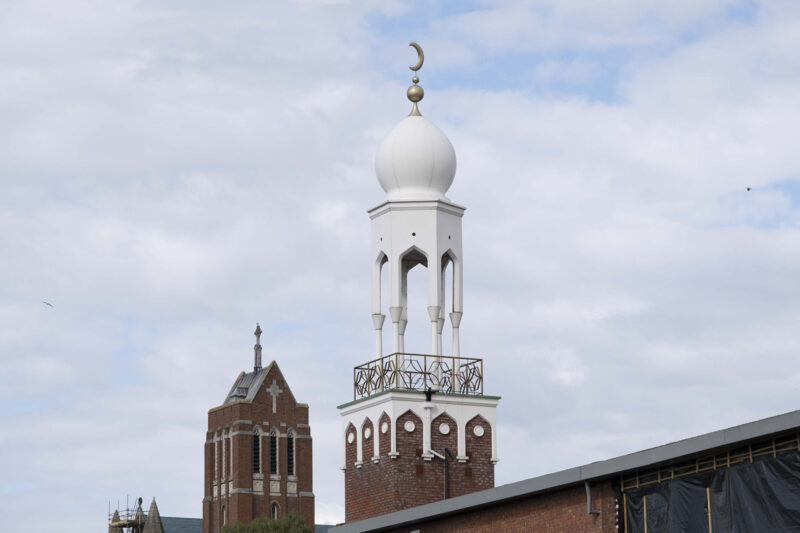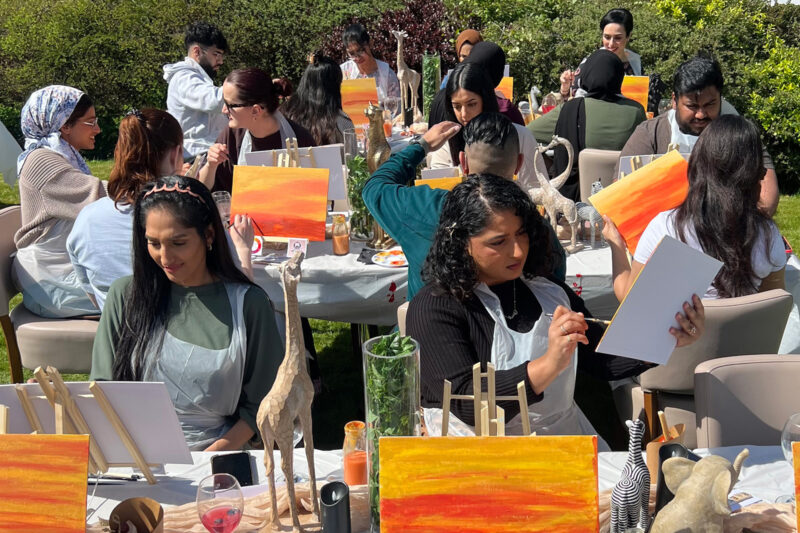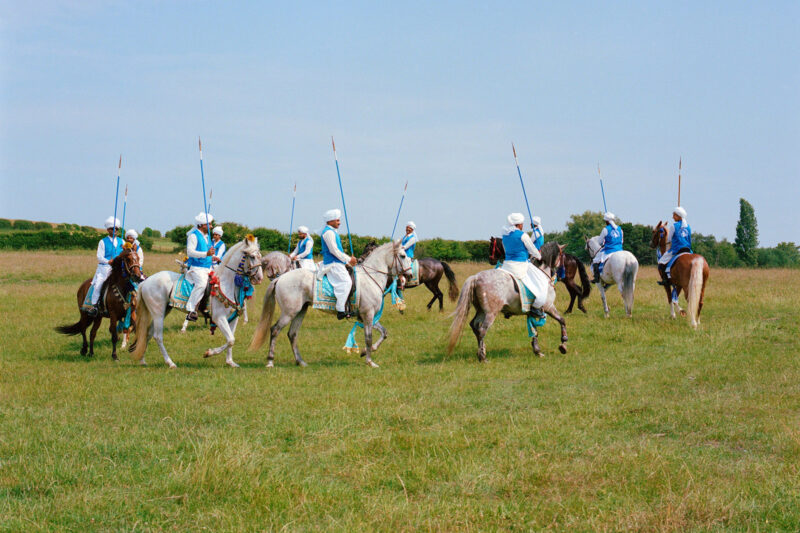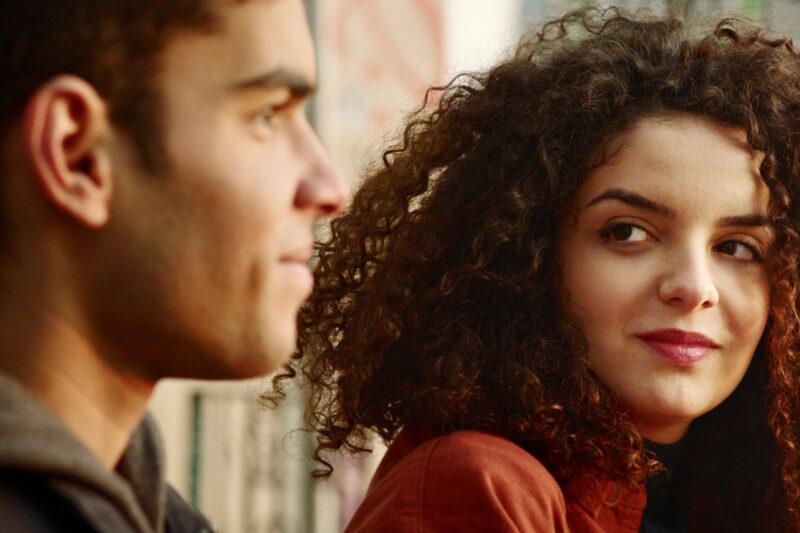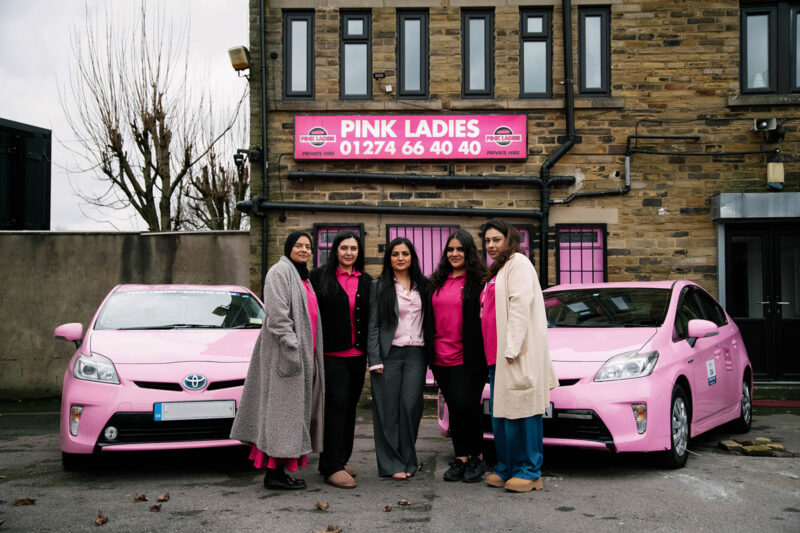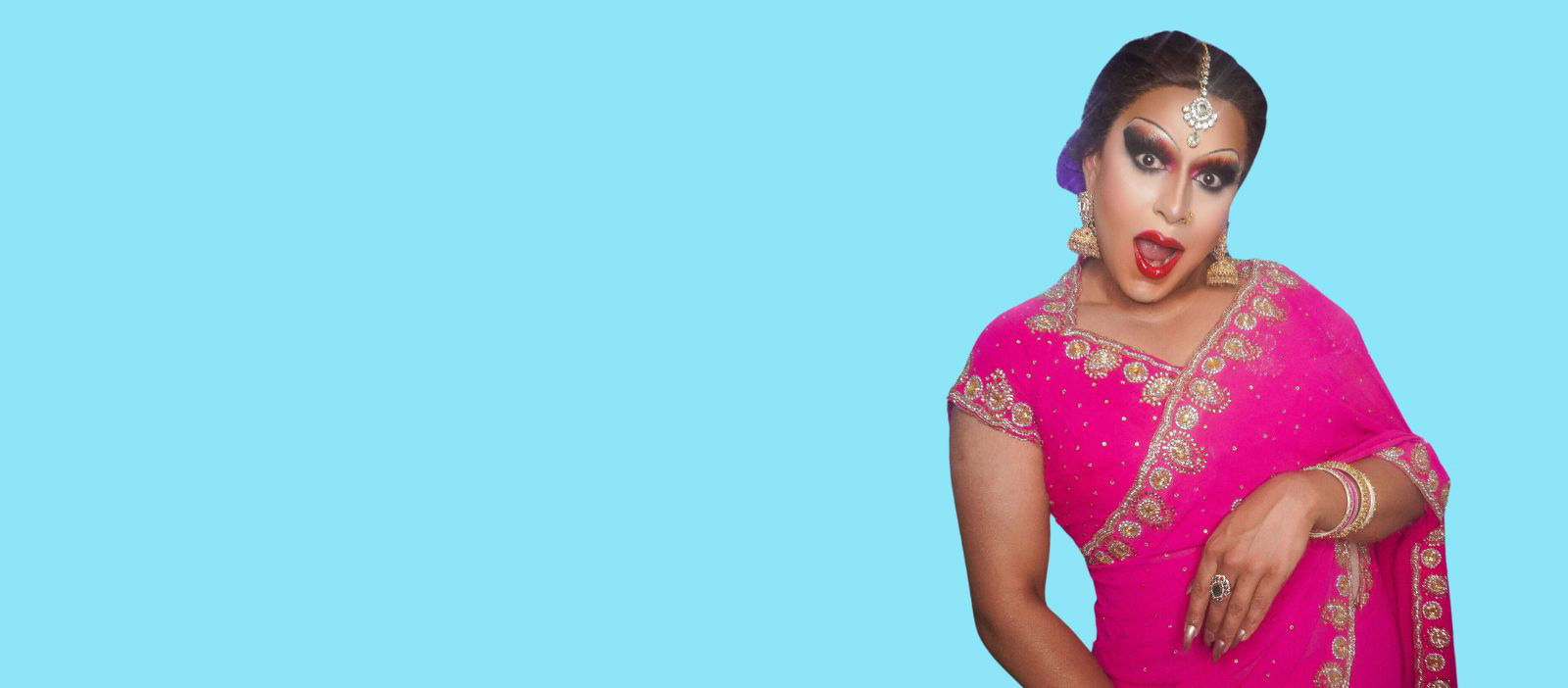
Lady Bushra Q&A: ‘Drag is punk rock’
Amir Dean has found liberation and meaning in bringing joy to audiences as his alter-ego, Lady Bushra. Photograph by Aamir Hassan, courtesy of Lady Bushra
The comedian and drag artist Amir Dean on why we should all be more like his larger than life alter-ego
Amir Dean, also known as Lady Bushra, has fast become one of the UK’s most prominent British Asian drag artists.
The performer swapped his background in biomedical science for the arts during the Covid-19 lockdown in 2020 and hasn’t looked back. Dean, who grew up in Bradford and now lives in Manchester, was raised in a conservative Muslim household where a career in drag was inconceivable to his family. While the journey hasn’t been easy, he has found liberation and meaning in bringing joy to audiences.
Dean was shortlisted for the BBC New Comedy Award in 2021 and continues to perform around the UK. He toured his stand-up show, Saree About It earlier this year, and currently has a monthly cabaret residency in New York.
He sat down with Hyphen to chat about his larger than life alter-ego, his love for the arts, and why we should all be more like quick-witted Lady Bushra.
Where does your inspiration for Lady Bushra come from?
Bushra is a South Asian name, but it was often used in a derogatory way towards girls that I grew up with in my hometown of Bradford. People would say, “don’t be like Bushra”, but I’m here to say be more like Bushra. Be that larger-than-life, boisterous person. Don’t let anybody knock that out of you.
My comedic style is definitely inspired by my late grandmother, she was very much that sort of camp villain in everybody’s lives and Bushra is like that as well — she’s not serious, she’s just fun. Joan Rivers is also an inspiration. I loved her story in terms of the hardships she faced and the adversity she went through and how it translated into her humour. And I would also say RuPaul. He’s got phenomenal comedic timing.
Were you always drawn to a career in comedy?
Comedy is my God-given gift — I think everybody has a gift and it’s up to you to nurture it. And I’m not saying I’m the best, but my intention is to nurture the comedy element. It’s something I was born with and it’s something that has served me well, particularly growing up as a queer kid. I wasn’t a physically confrontational person, but I was able to clap back, as the kids would say.
When did you move into drag performance?
I always had the desire to pursue the arts. But growing up in a conservative household, that wasn’t an option. When the pandemic hit, I’d lost my job in the pharmaceutical and medical device industry. I was under pressure and I was forced to be authentically me — a fun loving, crazy creative. And it just took off as a result of my emerging social media content and presence.
What impact has being part of the drag community had on your life?
In terms of confidence, drag really helps. It really is like putting on armour in many ways. But I think the true confidence comes from being your true, authentic self. Once you stop apologising for who you are, you exude confidence and ultimately it is that confidence that other people are attracted to. Truth is, it is a daily practice to keep those voices of doubt at bay and to keep being true and authentically yourself.
I believe that if you can’t see the change, be the change, and it is going to inevitably inspire some people. It’s really great to see how the younger generation are navigating themselves and how they are being their true, authentic selves. More power to them.
You’ve spoken previously about drag being liberating. Where does that feeling come from?
Drag has been a part of the human experience for a long, long time. Even if you look at Hindu mythology, although they wouldn’t call it drag, the concept of one gender being another has been around forever.
Drag is several things. It’s questioning people’s reality and at the same time, it’s reminding people not to take life too seriously. You wake up in the morning, you have a coffee, you go to work and put the hours in, you get a promotion, you buy a house, you have children, and you die. Alternatively, as a drag queen, you wake up at two in the afternoon, get makeup on, perform at midnight, go to bed at four in the morning and get paid the same by being something that is not you entirely.
Sometimes there’s pressure for people to be “manly”’ and “man enough” — well, how about I be a man and make money dressed as a woman? It’s just so sacrilegious and punk rock, and that’s what people are attracted to.
You often perform in a saree — is Lady Bushra a way of paying homage to your heritage?
Yes, that’s the British Asian experience. Regardless of what happens politically, ultimately this country is highly dependent on the migrant community. Migrants bring their own experiences to this nation, and this nation gives space to showcase that and celebrate it. We’re in a society where South Asian attire is not an uncommon appearance in the UK. People come to my shows and they do like it, so it’s great to be able to share that element of my heritage.
 Newsletter
Newsletter

